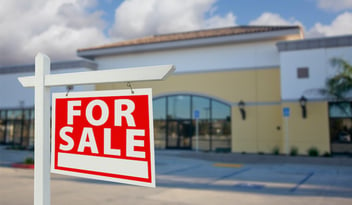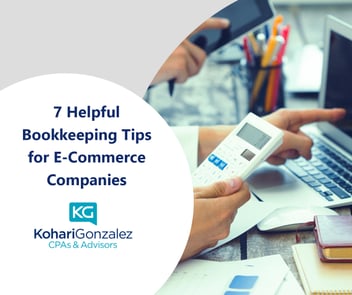Do you dread the prospect of paying your Charlotte business landlord rent for the rest of your life?
When you hear stories of other individuals developing real estate empires, do you experience a little FOMO?
The decision to buy your own place from which to run your Charlotte company is a big one. MAJOR.
One of the most complicated aspects of that decision is the whims of commercial real estate financing.
Before we go any further, there is a very important notice for Gastonia restaurant owners:
THE SBA OPENED APPLICATIONS FOR THE RESTAURANTS REVIVALIZATION FUND THIS WEEK (RRF). This new initiative gives financial assistance to restaurants, bars, and other food and beverage establishments that have suffered financial losses as a result of the pandemic. Go here to read the SBA programme handbook.
Please forward this valuable information to any Charlotte restaurant owners you know so they may learn about this programme. We want to make sure that all Charlotte restaurant and bar owners are aware of this initiative because the money allotted to it are expected to go rapidly.
Let's look at how you might turn your goal of owning your own office, business, or shop into a reality.
Commercial Real Estate Mortgages: What Charlotte Business Owners Should Know
“You just can’t beat the person who won’t give up.” – Babe Ruth
The American dream for many people includes a warm home with a well-kept lawn, and our home loan system is perfectly set up to make this goal a reality for a large number of individuals.
The idea of having a store, shop, or office site, on the other hand, is a lot murkier for entrepreneurs. There are a lot of variations between residential mortgages and commercial real estate mortgages, so make sure you know exactly what you're getting into before jumping into Charlotte commercial property finance.
The Most Significant Differences Between Residential and Commercial Loans
Home loan options in the United States are among the greatest in the world. A 30-year, fixed-rate loan is the most prevalent loan kind, and you're definitely familiar with it. These home loans are easy to obtain, feature moderate interest rates, reasonable costs, and no prepayment penalties.
Commercial real estate mortgages, on the other hand, are typically the polar opposite.
Commercial mortgages are typically for a shorter period of time. A common loan period is five to ten years. The monthly payment is frequently estimated over a 20 or 30-year period, but the loan is due much sooner. A balloon payment is expected at that time, which means you must either have the cash to pay off the debt or refinance it. The majority of business owners refinance into a new loan.
However, you should not refinance too fast. No, no, no. Commercial loans, unlike residential mortgages, nearly always contain a prepayment penalty if you refinance too soon. A five-year loan, for example, will usually carry a two- or three-year prepayment penalty. A 5-year prepayment penalty is fairly frequent on a 10-year loan.
These penalties are likewise rather severe. The penalty is often calculated as a percentage of the loan debt that decreases over time. For example, if you pay off a loan with a 5-year prepayment penalty period in the first year, you may be charged 5% of the loan total, 4% in the second year, 3% in the third year, 2% in the fourth year, and 1% in the fifth year. A step-down prepayment penalty is what it's called. There are also some more difficult methods for calculating this penalty.
By consenting to other terms that favour the bank, such as a floating rate loan, you may be able to avoid prepayment penalties. This is a loan with a variable interest rate, as the name implies. A minimum and maximum interest rate, as well as the time period between modifications, may be specified in your mortgage contract. It might be tough to pick between fixed and adjustable rate loans in a low-interest rate business environment like the one we have now.
Commercial mortgage interest rates are often higher than residential mortgage interest rates. This is due to government-backed entities that purchase up home loans, such as Fannie Mae and Freddie Mac. Because this does not exist in the commercial mortgage industry, banks are forced to manage their own lending risk, which leads to higher rates.
Commercial buildings will necessitate far larger down payments than residential loans. While no money down, 3.5 percent down, and 5% down lending programmes are prevalent for residential loans, commercial loans nearly invariably require a 20% to 30% down payment.
Finally, the fees associated with obtaining a commercial mortgage may cause you to cry. Total fees on residential mortgages are often in the range of 1% to 2% of the loan amount, but expenses on commercial mortgages are typically in the range of 3% to 5% of the loan amount.
Still yearning for your own Gastonia office space? Let's speak about how to get this loan...
Qualification for a Commercial Mortgage
It is certainly feasible to buy a home with no money down, a 580 credit score, a bankruptcy filing on their record, and even while paying unpaid taxes to the IRS, as absurd as it may sound. Federal authorities not only promote and back such lending schemes, but they also promote and back them.
Qualifying for a commercial real estate loan is a completely different animal.
The ability of the property to support itself is the primary criterion for commercial real estate mortgage qualification. To put it another way, banks want to see that the property can earn enough rent to cover the mortgage payment, taxes, insurance, and other monthly expenditures, plus a little extra. This is significantly more significant than your own credit score or salary. If there are several tenants on the property, a lender will want to look at the existing leases, the history of tenant stability, and other aspects of the property.
If you're buying a property that won't have any other tenants than your own company, the lender will be very interested in your company's financial condition. In other words, they'll consider your company like a "tenant" and assess the property's potential to maintain itself based on fictitious "rent" that your company can pay.
Furthermore, the bank may want evidence of considerable financial reserves in your company. It will be difficult to purchase a property in Charlotte if your company is fighting to make ends meet every month and has very little cash on hand. However, there are several exceptions for SBA loans.
If the Charlotte property you're considering has other businesses leasing space, the lender may have concerns about your capacity to manage the property and those tenants. Some lenders will need you to have a certain amount of property management experience or to hire a commercial property management company as a condition of the loan. Another situation where an SBA loan may be appealing is if your company will occupy at least 51 percent of the square footage of a commercial property in Charlotte.
Benefits from Taxes
Obtaining commercial real estate mortgages, despite the high costs and stringent qualification standards, can be extremely beneficial. You will benefit from any appreciation in the property's worth, in addition to the likelihood that owning will be less expensive than leasing your space.
Furthermore, just like owning a home, there are considerable tax advantages to owning business property. Your firm can deduct all of the interest you pay, as well as property management fees, maintenance charges, insurance, and property taxes. If you plan to pass your firm on to your heirs, owning the land affords some fantastic estate planning alternatives.
Purchasing your own commercial property is a significant step forward for your Charlotte company. We'd be delighted to go over the financial aspects of such a transaction with you, including any potential tax planning possibilities. Make an appointment here:
https://calendly.com/saragonzalez
Warmly,
Sara Gonzalez



